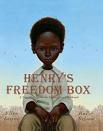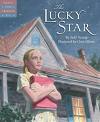Posts tagged ‘perseverance’
74. First Day Jitters by Julie Danneberg
 Retell: Sarah Hartwell is nervous about going to her new school. She hides under the covers while Mr. Hartwell urges her to get out of bed. Luckily the students, the principal and the staff are friendly to Sarah and she eventually feels ready for the first day of school. It’s a good thing because Sarah isn’t a kid–she’s the teacher.
Retell: Sarah Hartwell is nervous about going to her new school. She hides under the covers while Mr. Hartwell urges her to get out of bed. Luckily the students, the principal and the staff are friendly to Sarah and she eventually feels ready for the first day of school. It’s a good thing because Sarah isn’t a kid–she’s the teacher.
Topics: first day of school, nervousness, teachers
Units of Study: Realistic Fiction,
Tribes: mutual respect, personal best, attentive listening
Habits of Mind: perseverance
Reading Skills: making connections, making predictions
Thoughts: I can’t believe tomorrow is the first day of school! I’m surprised by my own first day jitters. Last year I looped with my class. The night before the first day of school I remember feeling more relaxed because I already knew my students. Tomorrow I will be starting with a new batch of 4th grade learners. Though I’m not starting at a new school like Sarah Hartwell, I still feel anxious. I can only imagine how my students feel. I hope that after reading this book tomorrow my students will think of ways to help each other fight the first day jitters.
Welcome back to school everyone!
32. Team Moon: How 400,000 People Landed Apollo 11 on the Moon by Catherine Thimmesh
 Retell: Thimmesh tells the story of the Apollo 11 mission. It includes several quotes, interviews and amazing photographs from the moon landing.
Retell: Thimmesh tells the story of the Apollo 11 mission. It includes several quotes, interviews and amazing photographs from the moon landing.
Topics: moon landing, space, Apollo 11, teamwork, goals, problem-solving, perseverance
Units of Study: Nonfiction, Content Area, Personal Essay
Tribes: attentive listening, mutual respect, personal best
Reading Skills: envisionment, inference, interpretation, determining importance
Writing Skills: using descriptive language, inserting quotations, using dashes, using ellipses
My Thoughts: To commemorate its 40th anniversary I plan to read at least one book about the moon landing this year. What I love about this particular book is its emphasis on teamwork. As the title suggests, Apollo 11 was successful because of the dilligence of several hundred-thousand people working together in teams trying to accomplish one goal. It’s a dense book so I can see reading only a few sections at a time. This could be used as a rich mentor text for writing nonfiction. Thimmesh writes with excitement and enthusiasm making the text very engaging.
15. Henry’s Freedom Box by Ellen Levine
 Retell: This is the true story of Henry “Box” Brown. After his family was sold to another plantation, Henry decides to escape to freedom via the postal service.
Retell: This is the true story of Henry “Box” Brown. After his family was sold to another plantation, Henry decides to escape to freedom via the postal service.
Topics: underground railroad, slavery, perseverance
Units of Study: Nonfiction, Content-Area Reading and Writing, Historical Fiction
Tribes: personal best
Reading Skills: inference, emapthy
Writing Skills: incorporating symbolism, using setting details
My thoughts: I can see why this won a Caldecott Award. The illustrations by Kadir Nelson are larger than life. What’s nice about this book, as well as many biographies written for young readers, is its author’s note. Reading both the story and the author’s note is a nice way to compare narrative and expository nonfiction. Though Henry’s Freedom Box is a biography, I could also see reading this book during a unit on historical fiction to examine how an author tucks in historical details.
8. The Lucky Star by Judy Young
 Retell: Ruth, a young girl growing up during The Great Depression, discovers that her school will be closed down before she enters her 5th grade year. Ruth learns a lesson of perseverance and counting one’s lucky stars.
Retell: Ruth, a young girl growing up during The Great Depression, discovers that her school will be closed down before she enters her 5th grade year. Ruth learns a lesson of perseverance and counting one’s lucky stars.
Topics: The Great Depression, perseverance, family,
Unit of Study: Historical Fiction, Character
Tribes: Personal best
Reading Skills: inference, making connections, prediction
Writing Skills: incorporating setting details, using sensory details
My Thoughts: This book would be a great mentor text during a unit on reading and writing historical fiction. However, I’m tempted to use this at the beginning of the year when I introduce partner work and independence. The Lucky Star teaches that smart people persevere through difficult situations. A closure of a school, or similarly an absence of a teacher or a change in schedule, does not mean that learning stops completely.